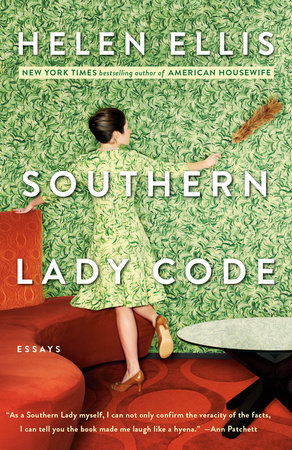Reading Group Center
- Home •
- Books by Category •
- Imprints •
- News •
- Videos •
- Media Center •
- Reading Group Center
Southern Lady Code
By Helen Ellis
1. Why do you think Helen Ellis chose to arrange the essays in Southern Lady Code the way that she did?
2. How does Ellis talk about the “Southern Lady Code”? Does the tone remain the same throughout, or does it change with each essay?
3. Ellis has an incredible sense of humor. What were some of the funniest lines or scenarios to you?
4. In “The Ghost Experience,” Ellis discusses many encounters with the supernatural. Do you get the sense that Ellis believes in ghosts? Do you?
5. There are several shorter essays that come across as instructional but also somewhat farcical, like “How to Stay Happily Married” and “What Every Girl Should Learn from ABC’s The Bachelor.” What do you think is the intention behind these brief interludes?
6. In “Making a Marriage Magically Tidy,” Ellis admits to being a reformed slob and tells us how “It is in [her] husband’s nature to accept [her] the way [she] is.” Discuss the way she talks about their relationship. Does Ellis’s relationship with her husband remind you of relationships in your life?
7. In “Free To Be. . . You And Me (And Childfree),” Ellis talks about her and her husband’s decision not to have children. This can be a polarizing topic, but Ellis presents both sides of the argument here. Is this a topic you feel strongly about? Why or why not?
8. In “Party Foul,” Ellis’s parents play an extreme practical joke during one of her birthday parties. Have you ever been a part of something similar? What was your reaction to this story?
9. Some Southern Lady practices are very traditional, as in “When to Write a Thank-You Note” or “An Emily Post for the Apocalypse.” These habits appear to have served Ellis well over the course of her life. Do you think society has moved away from these traditional practices? Why or why not? Do you think we would benefit from bringing them back? Why or why not?
10. Ellis approaches more serious topics, like mammograms, a murder trial, and muggings, with the same degree of levity (and a healthy dose of self-satire) that she does every other topic. Discuss how humor can work as a coping mechanism for life’s more difficult experiences.
11. Which of the essays was your favorite or resonated with you most? Why?


